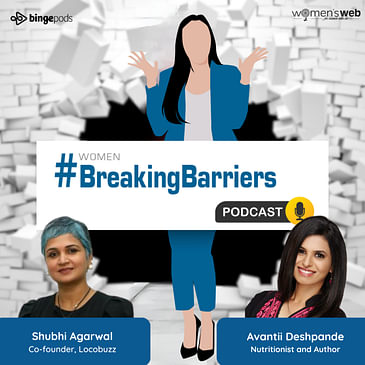In this episode of Breaking Barriers with Shubhi Agarwal, we catch up with Nutritionist, author and podcaster Avantii Deshpande. Get some great insights about women's health and find out how Avantii has differentiated herself in her journey as a professional.


